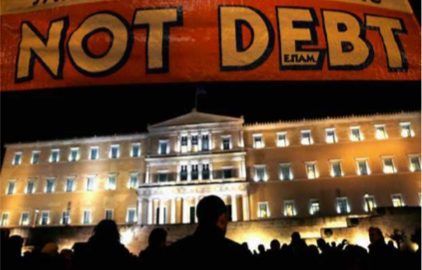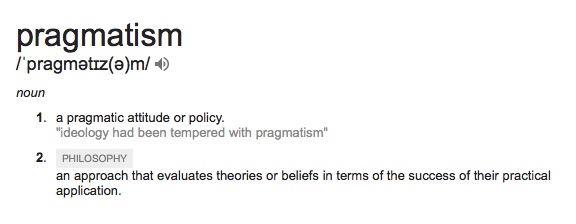This has been a roller-coaster week, if there’s ever been one; and the final outcome is yet to determine Greece’s immediate future.
Athens has been on a collision course with its eurozone partners ever since SYRIZA, the radical left-wing party, formed a government in coalition with the right-wing, strongly anti-austerity, Independent Greeks party. Last Monday’s Eurogroup meeting was the second consecutive such meeting where Greece’s new flamboyant Finance Minister, Yanis Varoufakis, found himself totally isolated, one against eighteen.
Athens on collision course with Eurogroup over financing
But this time around there was a general sense of urgency as time is running out for the Greek government, and Varoufakis went out of the meeting with a clear ultimatum in his hands: if Greece does not agree to eurozone’s terms by Friday then the country will be out of any bailout programme at the end of the month.
Liquidity of the banking sector is becoming more of an issue day by day as Greeks rush to withdraw their deposits. The European Central Bank has agreed to extend its Emergency Liquidity Assistance by €3.3 billion, much less than the Greeks had requested.
The ECB has made it clear that ELA is a means to support only viable banks, implying that Greek banks are getting close to losing viability. The Bundesbank also warned that the money offered to Greek banks could not be used to acquire Greek treasury bills thus turning ELA funds to state bailout money.
By now, capital controls — forbidden words under normal circumstances — is an option openly discussed in Athens and elsewhere.
Meanwhile, the state is hanging on by the skin of its teeth in terms of financing as revenues have dropped significantly in the midst of unprecedented uncertainty. Tax receipts have shrunk dramatically, and January marked the return to primary deficits.
So, today looks like the make-or-break day for Greece. The Eurogroup meeting this afternoon will decide whether the eurozone’s patient will remain under mechanical support or be left to his own devices.
Berlin remains unimpressed, demanding more concessions from the Greek side.
Greece was coerced into submitting a formal request to have its bailout programme extended — or a version thereof. Finance Minister, Yanis Varoufakis’s, letter to his eurozone colleagues went a long way to meeting German demands, even risking political upheaval within the coalition government.
But Berlin remained unimpressed, demanding more concessions from the Greek side.
It appears that there four main stumbling blocks on the way to agreement.
• Will the current programme be extended or terminated and replaced by an interim regime?
This disagreement carries great political significance for Greece’s Prime Minister, Alexis Tsipras, as he needs to appear to abide by his pledge to put an end to the existing bailouts. It looks, however, as though this could be resolved by imaginative choice of language that could allow both sides to save faces with their public.
• Greece requests that the primary surplus targets envisaged in the programme be moderated; it considers 3% for 2015 and 4.5% for 2016 forbidding and wants some leeway that would allow it to mitigate the social cost of the unprecedented fiscal adjustment that was achieved in the previous years.
Here, a genuine compromise could be achieved as the two sides could meet half way.
• The rift that appears more difficult to bridge concerns the government’s reform programme. Tsipras and Greece’s creditors agree that drastic measures must be taken immediately successfully to fight tax evasion and high-level corruption — Europeans are disappointed by the previous Greek governments’ performance on these fronts.
Bailout programme reforms are the direct antithesis of this government’s political programme and ideological foundations.
But the main bulk of reforms stipulated by the bailout programmes are the direct antithesis of this government’s political programme and ideological foundations. Privatisations, labour market and trade unions reforms are a no-go area for Tsipras and an absolute prerequisite for the creditors — they believe that without this kind of deep change the Greek economy will soon relapse to the vicious circle of deficits and debt.
Tsipras announced that his government’s first legislative moves would be bills that will undo the changes brought to these areas in the last five years, thus signalling his intent to go to conflict with Europe if he considers it inevitable.
• Finally, there is a purely political obstacle. Tsipras declared his victory to be a sign of change, not just for Greece, but also for Europe as whole. The German government’s fiscal orthodoxy feels this declaration ought to be defeated in the most emphatic way, otherwise Greece could become a model for other countries that would spell the end of the eurozone as Berlin envisages it.
To rally popular support, Tsipras could resort to the usual populist methods of inventing foreign and domestic enemies.
But Tsipras needs a face-saving deal that will allow him to tell Greeks that he has not surrendered to German demands; he needs to able to claim some kind of victory, even if limited. If Germany is determined to crush his claim of change in Europe, he will be left with no other choice than using his currently huge approval rates to lead his country to conflict, no matter what the cost.
To rally popular support behind his government, he could then resort to the usual populist methods of inventing foreign and domestic enemies — European creditors, Germany and the markets, the oligarchs and the media.
In any case, Greece’s fate is hanging by a thread and being decided by 18 dark suits and Varoufakis’s open-neck shirt behind closed doors in Brussels as you read these lines.





![Greece celebrates Euro 2004 victory [aud] Greece celebrates Euro 2004 victory [aud]](http://serpico.gr/wp-content/uploads/2018/03/euro-2004-greece.jpg)